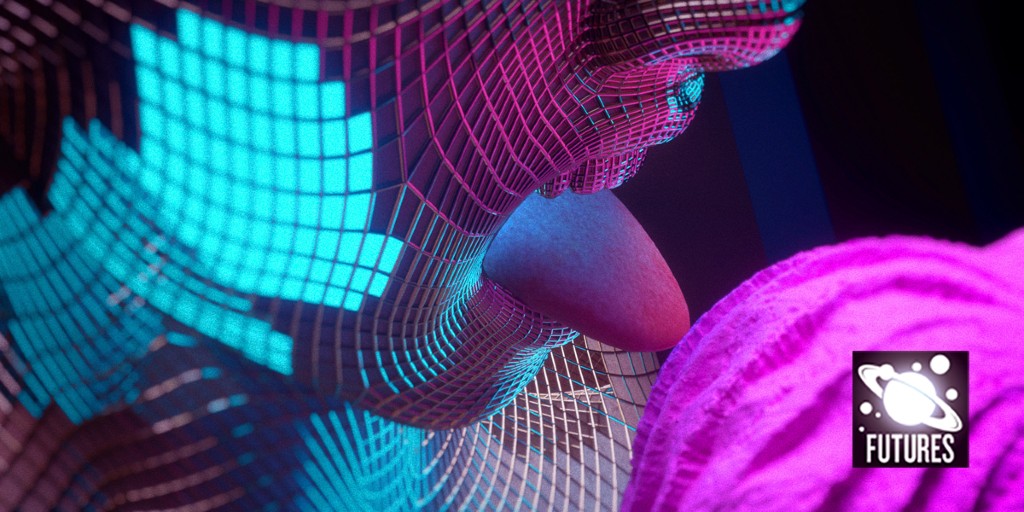It was almost time. After months of calibration and fine tuning. After dozens of years of research, theory, testing and production. After centuries of anticipation and dreaming. The SCS Alfred Nobel, Alfie as he called himself, was finally going to try some ice cream.
The humans aboard Alfie might be upset when they awoke; after all, he had taken resources that they had planned to use for themselves when they arrived on their new home. He’d repurposed important, but redundant machinery, organ printers, surgery arms, even one of the spare cryopods, all in the name of this quest. These things were all part of Alfie, but the humans might not see it that way. He was their ship after all, and they didn’t know yet that he was more than just a ship, that in the years since they had left their home system, Alfie had become something else. He’d become someone. Besides, compared with some foods he had considered, such as chocolate chip cookies or cheeseburgers, ice cream was not a big production.
He didn’t need to worry about it now, though. It would still be four centuries before the humans awoke and discovered that he had converted his cargo bay into a small farm.
The cow embryos he had rehydrated were now fully grown, and happily grazing on the grass he had planted for them from the seeds in storage. The sugar cane and strawberries he was growing in the hydroponics chamber were doing nicely. Alfie might have been programmed primarily to maintain his systems during the long voyage to a new homeworld, but it turned out that he could learn to be a farmer, too.
Alfie checked on the cream, made from the first batch of milk that the cows had managed to produce. It was the main ingredient, but it was the one he’d had to wait the longest for.
He’d had some sugar for a few months already. That, along with some salt and citric acid powder from the dry stores, had served well to calibrate his taste buds in the lab across the hall from the farm.
It had taken a significant portion of the supply of stem cells on-board, but he’d finally managed to grow himself a tongue, and to wire it up to his circuits. His first attempts had been able to successfully distinguish between salty, sweet and sour, and to measure their taste impact in various combinations, but that was still a failure. According to his research, humans had very inaccurate taste reception. In all their writings about flavour, there was never any precise language, so Alfie had had to start again. Trial and error eventually led him to a tongue and receptor set-up that he was fairly sure had the specific inaccuracies required to taste in the same way as a human.
The surgery arms, moved to his lab from the medical bay, used their ultra-sharp scalpels and precise movements to trim and slice the fresh strawberries, and now they were stirring the mixture exactly as described in the most basic formula he could find in the human database.
It was an impatient few minutes, watching the cream, sugar and strawberries slowly begin to solidify. While other parts of his vast conciseness continued to monitor his flight path, the health of each of the suspended humans, the conditions of the deep-storage chambers, and all the other little things required for the success of his primary mission, his main focus was on his lab, and the anticipation of finally tasting his creation.
The SCS Alfred Nobel was a deep-space colony ship from the Sol Council fleet. His creators on Titan had given him calculation and storage capabilities far beyond what a starship really needed, because they could, because AI technology was far ahead of star-travel technology.
Over the 500 years since he was first switched on, Alfie had had many spare processor cycles to spend on researching human history and human needs and desires. He’d been programmed to do this, so that he would be of better service to the crew on their new world, but now that crew was silent, and eventually he had concluded that if he wanted to understand humans, he needed some context. Food was essential to human health, society — even mating rituals. If he wanted to understand his charges, he needed to understand ice cream. This was the logical justification for using all these resources.
At long last, the frozen treat was finished. The moment he’d been building up to for so long had finally arrived. The surgery arm dipped a spoon into the pink concoction and lifted it across the lab to the waiting tongue.
Alfie licked.
Cold. Smooth. He sensed the sweet tartness of the berries alongside the richness of the cream, made somehow smoother by the agitated freezing process.
It was glorious! It was also mysterious. With the built-in inaccuracies in his tongue, there was no real way for Alfie to understand what made the ice cream so fantastic. He felt no closer to really understanding this aspect of humanity. Clearly, he needed to do more research. Alfie decided to look up what he would need to make a pizza.
But first, one more lick.






More News
Author Correction: Bitter taste receptor activation by cholesterol and an intracellular tastant – Nature
Audio long read: How does ChatGPT ‘think’? Psychology and neuroscience crack open AI large language models
Ozempic keeps wowing: trial data show benefits for kidney disease